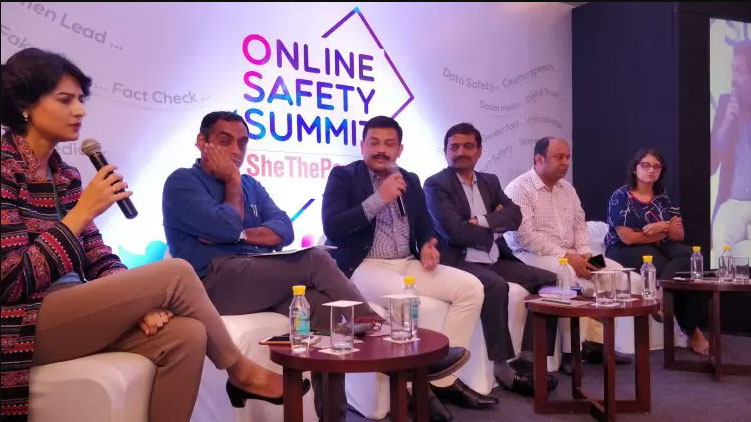The wildfire of fake news, spreading through social media giants, is hurting the society’s fabric, both online and offline. To discuss who’s at fault and who needs to be accountable, we discussed the menace of fake news at the Online Safety Summit.
Pratik Sinha of Alt News, which cracks down on fake news one article at a time, said often fake news is politically motivated. “What we also look at is what political representatives say on the podium and try to clear out the misinformation,” he said.
Journalist Nalin Mehta talks about including the mediums. He said, “Fake news is something we deal with on a mass scale every day. We must make a clear demarcation of what is fake news—it is something that’s propagated to malign somebody. In some cases, there is nothing wrong with the headline, in some cases relevant editors apologized for the errors they committed with the news piece.”
Giving an example, Mehta said: “There is one headline which said ‘Modi will meet with Xi Jing Ping six times in 24 hours’ and somebody photoshopped it, saying Modi will mate with Xi and that went around on Facebook and WhatsApp as an example of the journalism that we do—that is fake news specifically.”
Some powerful conversations around #digitalsafety at #safetysummit pic.twitter.com/gfoK2XUQJr
— SheThePeople (@SheThePeople) August 28, 2018
So what do we do to deal with it?
“We’ve realized that our traditional tools don’t work with this. The way journalists are trained mostly, we find ourselves inadequate to deal with it because we also need a lot more technical finesse to find fact from fake. How journalists do it is by talking to people on the ground and figure it out, but technology has trumped much of that. What we do is we have set up a fact-checking system of a number of people whose only job is to look at information both in the public sphere in general and also within our own edition,” Mehta explained.
K G Suresh, director general of Indian Institute of Mass Communication, feels that fake news has been there from time immemorial. “It has always been systemically spread by people against the regime. We have fake news since the time of Ramayana where people spread rumours around Sita’s relationship with Ravana. We have seen fake news being used by the fascist and the Nazi regime where they spread refined versions of a rumour.”
“Now, with social media, the pace has scaled up but I believe that fake news is not just something people generate deliberately, It is also because people — particularly media — have stopped doing actual ground reporting. Journalists are now pretty happy with sitting in air-conditioned rooms,” – K G Suresh
“Journalists don’t want to go through the ground reality, that’s why there has been a disconnect in the 2014 elections or the American elections. Journalists today have no clue of what’s going to happen and that also leads to a lot of fake news,” said Suresh.
Taking up the conversation up from the standpoint of law-enforcing agencies, Rahul Srivastav from UP Police said that instead of reaching out to the global issue of fake news, we need to tap into the fake news that has entered our own houses where our mothers’, sisters’ and brothers’ WhatsApp messages are filled with fake advertisements. “When I think of fake news as a police officer, I don’t think of fake news as black and white where there is a clear distinction between a fake news and a real news, but what’s also come into play is ‘baked news’, which is neither absolutely fake or real. It makes it difficult for people to absolutely deny it. There have been many such cases of baked news in UP in the past year.”
Srivastav talked about the various initiatives UP Police is taking to engage with the citizens of the state so that the law-enforcing agency can come closer to its people.
In a nutshell, fake news needs to be taken up as a citizen movement with collaborations from different stakeholders. We need to come together to curb it, rather than putting the baton on one another’s shoulder and shift the blame.
Source : https://www.shethepeople.tv/news/fake-news-shoot-messenger-medium/


